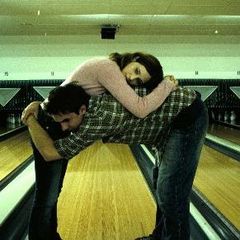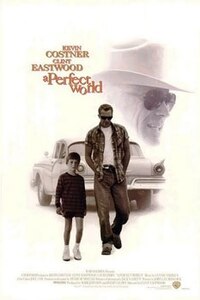
If you want to hear the every negatives about Superman Returns from a truly informed and articulate fan, ask Andrew Siragusa of Fredonia, NY. If you want to hear about the movie from a impartial non-fan, read on, my friend.
I have no love lost for Superman. I never read the Superman comics. I've seen the first two Superman movies. I didn't like them. I don't think they stand up to time that well at all, which is in some part no fault of the filmmakers who made something fresh and new almost thirty years ago. I had very little interest in seeing the new movie last summer, but like many big summer movies, I gave in because it received mostly good reviews and became a pop culture event. I like Bryan Singer. The guys who wrote X2: X-Men United were on board. Kevin Spacey. Enough good things for me to give it a watch.
I had a blast. It was a really fun movie to watch on the big screen. I recently picked it up from The Exchange for $5, and enjoyed the movie on the small screen just as much. I noticed flaws certainly (any discerning movie goer could pick on at least some) but I was impressed enough by the movie as a whole - the acting, the special effects, the directing, the writing, and the overall sense of storytelling that I hadn't really seen in a superhero movie (except Unbreakable, Batman Begins, and Spiderman 2).
There was a sense that the filmmakers thought really hard about what Superman means to American pop culture. Not what he was intended to be, but what he has become - America's messiah. It was interesting because the filmmakers made a point to show that Superman was a hero for the world with headlines and whatnot. But when Luther strikes, it's off the coast of the United States. Superman has to save Metropolis while other cities along the coast are ignored. Although truth, justice, and the American way have been pushed aside for a more world-wide hero, he is also shown as a product of American pop culture. He is America's saviour time and time again. I think that is where many fans focused their attention upon seeing the movie. They often point out how Superman's creators were Jewish, so a Jesus-like hero in tights was not really what they had intended. I think what they missed is that Superman is a character readily malleable to the messiah myth, one of the stories most often told in media (The Matrix movies, Dark City, etc.). You don't have to be Christian to make a movie with that allegory. It's just a good story to tell, the perfect way to frame the character in the new millennium. It was an interesting interpretation. So, instead of being just entertained by the explosions, flying, and zany villains (which I was), I was treated to a provocative look at what I thought was an out-of-date hero from comicdom's past.
But it's not all Jesus poses and moments (although those are there - Andrew can point them out to you if you missed them, but you won't). There's humor that can be zany, but never the corny punch lines of the Spiderman movies or the battle dialogue of Batman movies.
Most of the humor comes from Kevin Spacey as Lex Luthor and Parker Posey as his accomplice in a mad scheme. I liked Kevin Spacey very much in the film. I often see superhero movie villains as key opportunities for Hollywood stars to ham it up (and Spacey does a bit), but there's also that dryness to his humor in parts and a seriously evident need to beat Superman. That's where I really took interest in Luthor. The
Fimspotting guys rightfully said that it's almost impossible to give Superman a worthy villain, someone who will really challenge him in feats worthy of his extraordinary abilities. "Well said," I say. However, I disagree in the case of Luthor as played in Superman Returns. He essentially outwits and beats (you know, as much as you can beat the American messiah) Superman with an outlandish scheme which really isn't that well put together in terms of goals other than it challenges Superman. He nearly dies, folks. He's the man of steel and he gets stabbed. That's a villain for ya.
The whole land-is-the-new currency mad scheme is one of the least thought out in terms of believability. I know it's a superhero movie and you've got to give up quite a bit in the suspension of disbelief end, but I'm thinking in relation to the movie's reality. Luthor is a pretty smart guy. Smart enough to figure out how to kick around Superman. But for some reason he thinks people are gonna give him money to live on the green, rock mountain that is his new continent. And he can't be stopped by world forces because he possesses alien technology. "Bring it on!" he says. However, all we've seen this technology do is create some earthquakes, tidal waves, and electromagnetic impulses, all of which were within the U.S.. This technology makes ginormous land masses, but it occurs to me Luthor's crystals can't stop a nuclear attack on his new found cash cow. It terms of stopping Superman, it's a great idea. "Way to go, Lex!" I say. But in terms of saving his own skin from the military forces of the world, I find his scheme lacking the intelligence of what the mind Lex is supposed to possess.
"Nerd!" you shout. Indeed.
It seems to me that Superman should be out punching and kicking and swooping enemies all over the place, but he ends up just lifting things a lot. In truth, in a world where Lex Luthor is the best "super villain" you've got, car accidents, earthquakes, plan crashes, and other disasters are probably where you need a man in tights most. It just doesn't have the same popcorn entertainment of, say, Spiderman, Batman, X-Men, or really any other superhero movie. But I was entertained. Really, I was. I will watch this movie out again and again and like it. Because Superman's worth to the world is made tangible and so very clear. And because Bryan Singer knows how to make a movie. No, Andrew Siragusa, Singer did not destroy your beloved man of Metropolis despite what you think. He did manage to make one of our oldest heroes relevant not only in time, scope, and quality, but to eyes and ears searching for new ways to view old stories.
The most interesting thing anybody has ever said about Superman that I have heard come from the mind of Quentin Tarantino when David Carradine's Bill discusses him in Kill Bill Vol. 2:
"As you know, I'm quite keen on comic books. Especially the ones about superheroes. I find the whole mythology surrounding superheroes fascinating. Take my favorite superhero, Superman. Not a great comic book. Not particularly well-drawn. But the mythology... The mythology is not only great, it's unique. Now, a staple of the superhero mythology is, there's the superhero and there's the alter ego. Batman is actually Bruce Wayne, Spider-Man is actually Peter Parker. When that character wakes up in the morning, he's Peter Parker. He has to put on a costume to become Spider-Man. And it is in that characteristic Superman stands alone. Superman didn't become Superman. Superman was born Superman. When Superman wakes up in the morning, he's Superman. His alter ego is Clark Kent. His outfit with the big red "S", that's the blanket he was wrapped in as a baby when the Kents found him. Those are his clothes. What Kent wears - the glasses, the business suit - that's the costume. That's the costume Superman wears to blend in with us. Clark Kent is how Superman views us. And what are the characteristics of Clark Kent. He's weak... he's unsure of himself... he's a coward. Clark Kent is Superman's critique on the whole human race."
Filmspotting review (right click and choose "Save target as")
If you would like to speak further about Superman Returns (I've got opinions about the kid, Marsden, and Bosworth), leave a comment.
****














